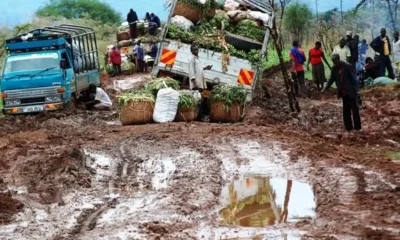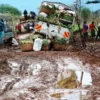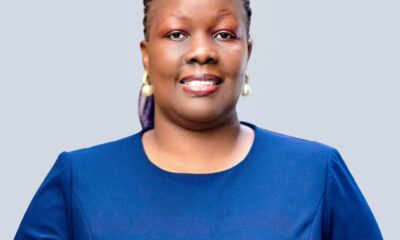Opinions
Envoy tips varsity students on leadership
Korea-Uganda Leadership Forum
I hope you can be the Ambassadors promoting Korea-Uganda friendship and partnership. To bring Ugandan youth to know better about Korea and appreciate Korean culture, the Embassy is planning to hold various events this year : Opening of Korea Corner(in Makerere University), Korean language contest, Tae Kwon Do contest, Korean food festival, Korean movie festival and concerts, Saemaul Undong(New Village Movement) demonstration day, Korean Economic Seminar, etc.
For good students of Korean language, there can be chances to visit Korea, and in the longer run, opportunities to work in Korean companies.
I am very pleased and excited to inaugurate this forum of youth to promote our ties because the youth are open-minded and forward-looking generation, seeking new frontiers and better tomorrow, and their potentials are immense.
Lecture on Korea’s Soft Power
What comes to your mind when you think about Korea? What are the images of Korea? You cannot come up with answers? Are you puzzled? It is only natural and understandable because Korea comes in mixed bags as it had undergone a very rapid transformation. Only a few decades ago Korea was called ‘the Land of morning calm’. But more recently, it is referred as ‘dynamic Korea’. In the eyes of development experts and the Western world, Korea is a very unique case of one of the poorest nation having successfully turned into a fully developed country.
So, let’s learn more about Korea. I want to talk bout Korea’s ‘soft power’, or the attractive qualities of Korea that lures other foreigners or nations onto itself. This seems rather theoretical or academic but since you are university students anyway, I think its okay. The renown Harvard professor coined this term in 2004. Soft power means ability to attract and co-opt rather than coerce. So normally, soft powers are features of powerful nations – universal powers or great powers, like the U.S, Great Britain, France, or newly emerging countries like China, and even Japan for that matter.
These days, in Korea it is fashionable to talk about public diplomacy. Public diplomacy can be described as various efforts and ways to project one’s soft power to other nations’ public. Till now, Western soft power is dominant. Virtually, everything you see around you is of Western heritage. This suit and neck tie I am wearing, the cars we are driving, pop music and movies – the mass culture we enjoy, our way of life, value systems like freedom and democracy, political and economic systems and institutions, international regimes, etc.
I got my Ph.D degree by writing a thesis titled ‘Korea’s Soft Power and It’s Foreign Policy vis-a-vis Developing Countries’. I focused on the elements of Korea’s soft power. But to derive at Korean model of soft power, I had to first set up other references.
My observation was that while soft power was essentially the qualities of powerful nations in general, there were difference in types of soft power. United States, once unipolar nation but now to a lesser degree, still wields ‘universal’ soft power. Hence it can be called ‘strategic’ or ‘global’. Great Britain and France were also dominant powers and still retain their world status on the strength of their cultural, political-social, economic heritage. For Great Britain, English is the universal language. There is the Commonwealth of Nations. France enjoys similar world sphere of influence, also having a very large grouping of nations, the Francophonie. I described the soft power type of Great Britain and France as ‘Status Quo’, meaning they are projecting their soft power to maintain their world status.
What about China and Japan? They have certain limitations or drawback as non-Western countries. I called their soft power type ‘defensive-supplementary’. Countries like Canada, which is not a great power but rather a middle power, nevertheless projected considerable soft power in certain areas like international peace. I named its soft power ‘niche’ type.
Now, let turn to the grand conclusion. What is the type of Korean soft power? Unlike Western soft powers which are more or less universal in nature, Korea’s soft power is mostly attractive for developing countries, although of late it is gaining increasing praise and appreciation from the international community.
Broadly speaking, Korean soft power elements fall in two areas: economic and cultural. To elaborate, they are (1) Development(transformation) experience. Korea’s per capital GDP in 1960s were less than that of Uganda but in less that 50 years it has emerged as a truly advanced nation in every aspect. (2) National Image (National brand) – Samsung LG, Hyundai, Kia, SK, Daewoo, POSCO, GS, Doosan, etc. Uganda needs to work on developing its national brand. As for coffee, Kenya, Ethiopia, Jamaica has done a far greater job than Uganda. Companies all over the world seek to maximizing brand power. Haagendazs Ice cream is a very popular brand and sounds like Danish product but in fact it is the American company taking advantage of fresh diary image that Danish name projects. (3) Korean Wave(K pop) * Korean dramas, movies, concerts, songs, dance are popular world-wide, even in Europe including France (4) ICT (5) Governance(government reform, e-government) (6) PKO (7) Political Plurality (8) UN Secretary General Ban Ki Moon.
I have mentioned 8 elements but there could be many more. So, let’s define Korea’s soft power. I would like to term it ‘creative’ type. Because everything is so dynamic and evolving. Korea, by the way, was chosen as the 2nd most innovative country in the world. The definitions of Korea’s soft power is that “which mainly targets developing countries to create a new partnership on the strength of such soft power elements as development experience and sentimental appeal, while actively promoting its national image of dynamism.”
Of course Korea has many challenges and weaknesses as well. Negative factors undermining Korea’s soft power are image of divided nation(South-North Korea), overly aggressive public demonstrations(including union movements), excessive social competition and pressure for success, etc.
Let me also mention the strength of Uganda. It is the natural beauty and attraction(tourism potential), English speaking, warmth of the people, religious harmony, political stability and security, agricultural potential, in addition to freedom of press and expression, political dynamism. Uganda can become the agricultural hub and energy hub of Africa(Post China 16).
Lecture on Leadership
Don’t equate leadership with CEOs or presidents of organizations. Training in leadership should start early when you are young, with every day life. I want you to become responsible and successful leaders in your societies and organizations, and also become leaders for Korea-Uganda partnership.
More and more, life is becoming competitive especially with the intensifying globalization. There will be so many challenges and obstacles ahead of you. You might think that entering a good university and finding a decent job will get you through in life. Well, it will not. Because it is only the beginning. You should endure and persevere for so long because life will test you at every corner of the winding road. Success will be judged from a very long-term perspective. One time big success will not last.
Now, let me share some of my experiences with you. Like many Korean students present here, I spend my youth in Uganda. Our home was in Kabalagala. I attended Aga Khan School in Kampala as 1st and 2nd year student.
I remember then, at school, when bells were ringing for a break-time and me and my classmates rushed to buy ground-nuts and cassavas(sprinkled with red pepper) from a vendor across the school fence at the football court. I was also fond of watching and playing table tennis with my friends.
The standard of education in Aga Khan School was very high from the perspective of Korea. At secondary school, we were learning from Oxford and Cambridge University Press text books. Physics, Biology and Chemistry were taught at labs, contrary to Korea where there were none at middle schools.
My education in Kampala was a defining moment for my future, and It was here that I got the inspiration and determination to become a diplomat. The dream came true for me.
These days, I see so many people, young and old alike, are short sighted, suffering the ‘what’s in it for me syndrome’. Their actions oriented towards immediate, short time gain rather than stable and long-term benefit, which is very unfortunate.
There is a famous saying in Korea : genius cannot beat those who endeavor and those who endeavor cannot beat those who enjoy. It is so important to enjoy your work. If you are reluctant to doing your assignments, you are only causing trouble for your boss and yourself. You should either find another job or find ways to like it.
‘What begun is half done’. I like this wise saying in Korea, which was also mentioned by Socrates. Be hopeful and determined. ‘Only I can change my life. No one can do it for me’. American actress Caroll Burnett said this. I can’t agree with her more. In many cases these days people only talk but not take actions. Confucius said “the superior man acts before he speaks, and afterwards speaks according to his action.” I also like the former President LEE Sung-Man’s utterance “united we live, divided we die.” These days we see too many selfishness and egotism, at the cost of community interest.
And many youths seek what is easy. But remember, ‘easy come easy go’, ‘no pain, no gain’.
This is my own – ‘when I am comfortable, some one isn’t’. When I feel very comfortable and happy at home because I don’t do anything while my wife does everything it means my wife took all the pain to make me comfortable. There is nothing free in life. Everything bears costs. I hope you bear this in mind.
I have important tips to be successful in your job which will help you become future leaders. (1) Be very organized, like writing your dairy everyday(I do still) 2) Be calm, and have control over your mind and temper (3) Swim with the tide, try to really enjoy your work rather than resisting it (4) Speedy information sharing and reporting. Don’t ever delay reporting all the necessary information to your boss and sharing with your colleagues. Don’t be afraid to call up your boss late at night. (5) Report writing, presentation skills are crucial for your success (6) Put your work and organization first, not your personal agenda. Pleasure and rest should come after the work, not the other way around. Laziness and corruptions are vices, work ethics should be strongly emphasized. (6) Think and act from the point of view of your boss, meaning you should have sense of ownership of your job and organization.
Also, don’t forget to be successful students. I Thank you all for your attendance and active participation. Please enjoy Korean and Ugandan food, and Korean cultural demonstrations that we have prepared. We look forward to continued and more energetic exchanges and collaboration.
Comments


















